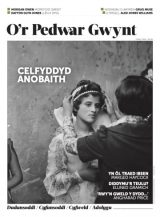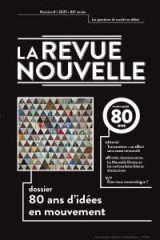A warning to Europe from across the Atlantic: are you sure you want a privatized healthcare system? Where the sick play phone tag with disembodied insurance brokers? Where over-cautious doctors insure themselves against malpractice claims? Where patients have to ask their insurers for permission to go to hospital? It’s not only the inconvenience, it’s the cost of the whole thing, says George Blecher.
George Blecher
George Blecher is a former professor at the City University of New York. He is a writer, journalist and translator. His articles appear in, among others, the New York Times, Eurozine, New Republic, Christian Science Monitor, as well as Visegrád Insight and the Danish daily Information. He is a member of the Eurozine Advisory Board.
https://www.georgeblecher.com/
Articles
In the light of the American presidential election in November 2004,
George Blecher muses on the growing gap between those sympathising with
the left and those people feeling close to the right. Blecher observes
the fears and projections of Republicans towards Democrats and vice
versa. Where does the prevalent feeling between the two
parties – namely hatred – derive from? Read George Blecher’s thoughts on the issue.
The popularity of recent war news documentaries in America shows that the public is hungry for more probing and serious information about the Iraq war, argues George Blecher, since the large television networks have failed to report and analyse the war in-depth and have instead opted for insubstantial, but flashy news clips that depict a sanitized and highly patriotic version of the war. Despite this renewed interest, Blecher is pessimistic about a sustained, serious engagement on behalf of Americans with the war.
Oasis in the desert
A conversation with Kevin Klose, President of the American National Public Radio
National Public Radio (NPR) is the closest thing in the US to a European state-run media network, although it’s neither state-run nor a media network. It was created in 1970 as a non-profit corporation to produce radio programs “in the public interest.” In this interview, Klose speaks about public radio that, with its emphasis on fact-based journalism, offers an alternative from the steady stream of sensationalist, right-wing talk-shows available on private radio.
George Blecher commemorates Lothar Baier
Lothar Baier (1942-2004)
Since I heard of Lothar Baier’s death, I’ve had the nagging wish to call Lothar in Montreal to try to make sense together of this weird, tragic event.
George Blecher discusses the timeliness of Thorstein Veblen’s “Theory of the Leisure Class” and traces his own lust for the “predatoriness” of the leisure class which was in his case kickstarted by heritage and manifested in the desire to stand out from the masses – by way of the “barbarian culture of wealth and competition”.



